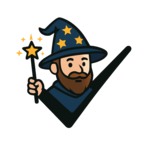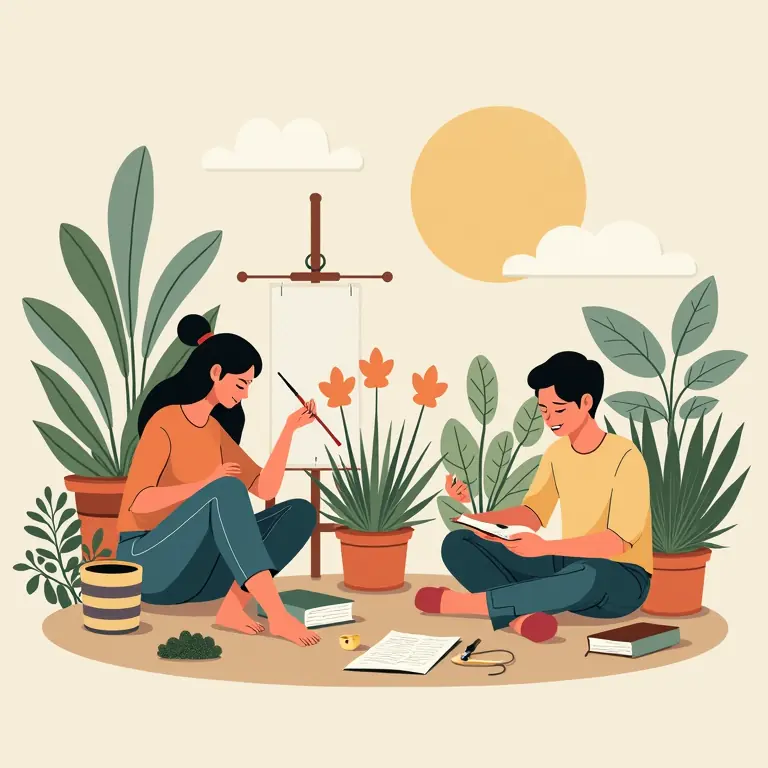Decode Your Downtime: A Friendly Guide to Mindful Hobby Selection
In today’s relentlessly ‘on’ world, downtime isn’t a luxury – it’s a necessity. But simply *having* free time isn’t enough. How we spend that time profoundly impacts our well-being, mental clarity, and overall happiness. Scrolling endlessly through social media might feel like relaxation, but often leaves us feeling depleted. The key lies in mindful hobby selection – choosing activities that genuinely nourish our souls and contribute to a fulfilling life. This guide will walk you through the process of identifying your interests, exploring different hobby categories, and ultimately, decoding your downtime for optimal benefit.
Why Mindful Hobby Selection Matters
Before diving into specific hobbies, let’s understand *why* this is so important. Think of your brain as a muscle. Constant stimulation from work or screens can lead to mental fatigue, akin to overworking a physical muscle. Hobbies offer a chance to exercise different parts of your brain, promoting neuroplasticity – the brain’s ability to reorganize itself by forming new neural connections. This isn’t just about avoiding burnout; it’s about actively building resilience and cognitive function.
Beyond the neurological benefits, hobbies foster a sense of flow – that state of complete absorption in an activity where time seems to melt away. This is incredibly restorative and can significantly reduce stress and anxiety. Furthermore, hobbies provide opportunities for personal growth, skill development, and self-expression. They can boost self-esteem, connect us with like-minded individuals, and inject joy and purpose into our lives.
Step 1: Self-Reflection – What Truly Sparks Your Interest?
The first step isn’t browsing hobby lists; it’s inward exploration. Grab a journal, find a quiet space, and ask yourself some honest questions. Don’t censor yourself – let your thoughts flow freely. Here are some prompts to get you started:
- What did you enjoy doing as a child? Often, our childhood passions hold clues to our innate interests. Were you building forts, drawing, writing stories, collecting things, or spending hours lost in imaginative play?
- What activities make you lose track of time? These are strong indicators of flow-inducing potential.
- What are you naturally curious about? Is there a subject you find yourself constantly reading about, a skill you’ve always wanted to learn, or a place you dream of visiting?
- What do you admire in others? Do you envy someone’s ability to play a musical instrument, their skill in woodworking, or their knowledge of astronomy?
- If time and money were no object, what would you do with your days? This thought experiment can reveal your deepest desires and passions.
Don’t worry if your answers seem scattered or unrelated. The goal is to gather raw material for the next step. Look for patterns and themes. Do you gravitate towards creative pursuits, intellectual challenges, physical activities, or social interactions?
Step 2: Exploring Hobby Categories
Now that you have a better understanding of your interests, let’s explore some broad hobby categories. This isn’t an exhaustive list, but it’s a good starting point:
- Creative Hobbies: Painting, drawing, sculpting, writing (poetry, fiction, blogging), music (playing an instrument, singing, composing), photography, digital art, calligraphy, pottery, jewelry making, sewing, knitting, crochet, quilting, woodworking, origami.
- Intellectual Hobbies: Reading, learning a new language, coding, puzzles (crosswords, Sudoku, logic puzzles), chess, astronomy, genealogy, history, philosophy, collecting (stamps, coins, antiques), birdwatching.
- Physical Hobbies: Hiking, running, cycling, swimming, yoga, rock climbing, martial arts, dancing, gardening, team sports (basketball, soccer, volleyball), weightlifting, calisthenics.
- Social Hobbies: Volunteering, joining a book club, participating in a choir, taking a cooking class, playing board games with friends, hosting game nights, joining a sports team, attending workshops, community theater.
- Culinary Hobbies: Cooking, baking, brewing beer, making wine, mixology, cake decorating, food photography, canning, preserving.
- Digital Hobbies: Video game development, graphic design, web development, podcasting, video editing, digital photography, online marketing, blogging, social media management.
Within each category, there are countless sub-niches. Don’t feel limited by these broad classifications. For example, “writing” could encompass everything from journaling to writing epic fantasy novels.

Step 3: Experimentation – Trying Things Out
This is where the fun begins! Don’t fall into the trap of trying to find the “perfect” hobby right away. The best way to discover what you enjoy is to experiment. Start small and low-pressure.
- Take a class or workshop: This provides structured learning and access to expert guidance.
- Borrow or rent equipment: Before investing in expensive gear, see if you can borrow from a friend or rent from a local shop.
- Start with online tutorials: YouTube and other platforms are treasure troves of free instructional videos.
- Join a local club or group: Connect with others who share your interests.
- Set realistic expectations: You won’t be an expert overnight. Focus on the process of learning and enjoying yourself.
Don’t be afraid to try something that seems outside your comfort zone. You might surprise yourself! And remember, it’s okay to *dislike* a hobby. That’s valuable information too. It narrows down your options and brings you closer to finding something that truly resonates.
Step 4: Refinement – Adjusting and Deepening Your Engagement
Once you’ve found a few hobbies you enjoy, it’s time to refine your engagement. Ask yourself these questions:
- How does this hobby make me feel? Does it energize you, relax you, or challenge you in a positive way?
- Is it sustainable? Can you realistically fit this hobby into your schedule and budget?
- What resources do I need to continue learning and growing? Are there books, online courses, or mentors that can help you deepen your skills?
- Am I enjoying the process, or am I solely focused on the outcome? The journey is often more important than the destination.
Consider setting goals for your hobbies. This could be anything from completing a project to mastering a new skill. Goals provide motivation and a sense of accomplishment. However, avoid setting overly ambitious goals that could lead to frustration. Break down larger goals into smaller, manageable steps.
The Importance of Variety and Avoiding Hobby Burnout
While it’s great to become passionate about a particular hobby, it’s also important to maintain variety. Focusing exclusively on one activity can lead to burnout, even if it’s something you love. Think of it like a well-rounded diet – you need a mix of nutrients to thrive. Similarly, a diverse range of hobbies can stimulate different parts of your brain and prevent mental stagnation.
Don’t be afraid to rotate hobbies seasonally or based on your energy levels. A physically demanding hobby might be perfect for the summer months, while a quieter, more introspective hobby might be better suited for winter.

Hobbies and Mental Health: A Deeper Dive
The connection between hobbies and mental health is profound. Engaging in enjoyable activities can:
- Reduce stress and anxiety: Hobbies provide a distraction from worries and allow you to focus on something positive.
- Improve mood: Hobbies release endorphins, which have mood-boosting effects.
- Increase self-esteem: Mastering a new skill or creating something tangible can boost your confidence.
- Foster social connections: Social hobbies provide opportunities to meet new people and build relationships.
- Promote mindfulness: Many hobbies require focused attention, which can cultivate a sense of presence and calm.
If you’re struggling with mental health challenges, hobbies can be a valuable part of your self-care routine, but they shouldn’t be seen as a replacement for professional help. If you’re feeling overwhelmed, please reach out to a mental health professional.
Resources and Inspiration
Here are some resources to help you explore potential hobbies:
- Skillshare: https://www.skillshare.com/ – Online classes in a wide range of creative and professional skills.
- Creativebug: https://www.creativebug.com/ – Focuses on crafts and DIY projects.
- Meetup.com: https://www.meetup.com/ – Find local groups and events based on your interests.
- YouTube: Search for tutorials and inspiration in any hobby category.
Don’t underestimate the power of local resources – community centers, libraries, and adult education programs often offer affordable classes and workshops.
Decoding Your Dreams & Downtime – They’re Connected!
Interestingly, our subconscious often reveals our hidden desires and passions through dreams. Exploring your dreams can provide valuable insights into what you truly crave in your downtime. Are you frequently dreaming about flying, which might suggest a desire for freedom and adventure, leading you towards hobbies like hiking or paragliding? Read our guide to dream interpretation to unlock these hidden messages. Similarly, understanding dream symbols can further illuminate your inner landscape.
Embrace the Journey – Your Downtime, Your Rules
Ultimately, mindful hobby selection is about creating a life that feels meaningful and fulfilling. There’s no one-size-fits-all answer. The “right” hobbies are the ones that resonate with *you*. Be patient with yourself, embrace experimentation, and don’t be afraid to change course if something isn’t working. Your downtime is a precious resource – use it wisely to nurture your mind, body, and soul.
For further guidance on creating a balanced lifestyle, explore strategies for optimizing your leisure time and prioritizing activities that bring you joy.


Discussion about this post